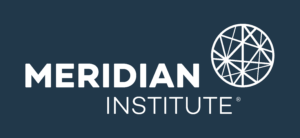Issue Overview
Digital sequence information on genetic resources (DSI), the exact definition of which is still debated, generally refers to the digital data derived from biological material, including plants, animals, and viruses (including but not limited to nucleotide sequences). DSI, sometimes called “genetic sequence data” (GSD), is a cornerstone of biological research and is critical in the development of commercial biotech, pharmaceutical, and food products as well as a wide range of non-commercial research. Governance of access to and benefit-sharing from the use of DSI is an issue of international importance and is an ongoing topic of negotiation in various international instruments.
Issues related to DSI are governed in part by at least five major international instruments, including: the Convention on Biological Diversity (CBD); the Food and Agriculture Organization’s International Treaty on Plant Genetic Resources for Food and Agriculture (ITPGRFA); the United Nations Convention on the Law of the Sea (UNCLOS or the Oceans Treaty); and instruments at the World Health Organization (WHO) including the Pandemic Influenza Preparedness Framework (PIP) and the emerging pandemic treaty (CA+). In addition, the World Intellectual Property Organization (WIPO) may also take on discussions of DSI.
Many of these instruments are currently negotiating rules for access to DSI and how to capture and share the benefits—both monetary and non-monetary—from its use. Recent decisions, such as the agreement at the 15th meeting of the Conference of the Parties to the CBD (COP15) to establish a multilateral mechanism for DSI with a global fund, have outlined a path forward for international negotiations on DSI.
Click here to read more on the importance of access and benefit-sharing from the use of DSI.
Meridian Institute’s Role in DSI
Meridian’s experience in the field of genetic resources spans decades, from work in the early 1990s on plant genetic resources to informal convenings on DSI over the past two years. For example, Meridian’s informal convenings have brought CBD negotiators, stakeholders, and rightsholders together to discuss DSI policy options. Some CBD negotiators have cited the importance of the opportunity to explore DSI policy solutions in such settings for building the trust and mutual understanding that facilitated agreement on Decision 15/9 at COP15.
Meridian recognizes that formal negotiations in these international bodies are high-pressure affairs in which time constraints, differing levels of subject matter expertise, and formal discussion structures can potentially limit the ability of negotiators to engage openly and creatively.
Meridian will create and support informal processes, which will run alongside the formal negotiations, in which parties and other stakeholders (e.g., scientific experts, industry actors, Indigenous Peoples and local communities (IPLCs)) can explore potential solution pathways. Meridian will design these informal sessions in partnership with parties, stakeholders, and rightsholders to help foster vigorous examination of substantive questions and to build trusted personal relationships that can enable progress in the formal negotiation processes.
Click here to read the Meridian DSI Informal Work Overview.
Our Work
Meridian will pursue the following three workstreams as part of its informal work on DSI. Meridian recognizes that this informal work on DSI will require coalition building and a great deal of coordination with other actors. Given the crucial importance of understanding and responding to the needs of the negotiators as well as other stakeholders and rightsholders with strong interests in the governance of DSI, Meridian consults regularly with actors across the landscape and adjusts its planned activities as appropriate.
Funders & Partners
This work is made possible by the generous support of the Government of Norway (channeled through Norad) and the Bezos Earth Fund. Meridian Institute is working closely with the ABS Capacity Development Initiative to deliver comprehensive informal engagement of parties, stakeholders, and rightsholders to the CBD negotiations on DSI.
Contact Us
For more information about Meridian’s ongoing informal work on DSI, please contact Brad Spangler (bspangler@merid.org) or Julian Portilla (jportilla@merid.org).



